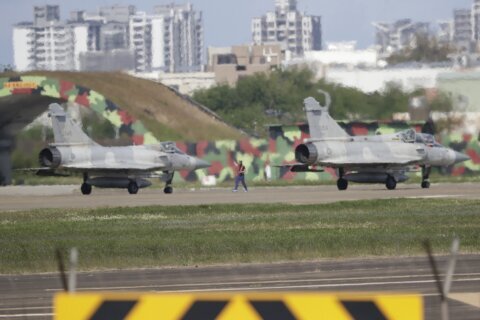TARRAGONA, Spain (AP) — Dozens of people squeeze together, pressing as tight as they can get. The stronger the foundation they build, the less likely their human tower will collapse. As children and others climb, they create eight, nine, even 10 dizzying stories.
They tug on sashes wound around torsos, gritting their teeth to keep their backs straight and their legs from buckling. With maximum concentration, they look into each other’s eyes, seeking further support.
The tradition of building human towers, or “castells” in Catalan, dates to the 18th century and forms an essential part of Catalonia’s culture. “Colles,” or human tower troupes, compete to build the tallest and most complicated towers at festivals often held in village squares across the region in northeastern Spain.
For many Catalans, the towers symbolize the pride they feel for their land, language and history. It means they are in it together and, if united, they are capable of amazing feats.
As the tower goes up, the ages come down. Graying hair, receding hairlines and the burliest bodies are seen on the ground floor. The increasingly nimble are tasked with creating the final stages. Young men and women, then teenagers, then children ascend in a spidery climb, their arms interlocked, to the very top.
The smallest boy or girl, as young as 5 years old, crowns the tower, reaching some 16 meters high (52 feet). Then, as collective strength wavers, the tower often sways. It undoes itself, with each level sliding down the backs of lower ones.
Or the tower crashes on the heads and shoulders below. Injuries aren’t common, and children wear helmets.
Every two years, the most important competition for human towers is held in Tarragona, an old Roman city on the Mediterranean coast. The “Concurs de Castells” started in 1932. It now invites the 42 best teams to compete.
Newcomers and foreigners alike now take part in this practice that’s included in UNESCO’s list of Intangible Cultural Heritage.
Tomoko Sakamoto is from Japan. She, her husband and their two children participate in a human tower troupe.
“It’s changed my life,” she said. “I am part of Catalan culture and I am proud.”
___
Iain Sullivan in Madrid and Joseph Wilson in Barcelona contributed.
Copyright © 2024 The Associated Press. All rights reserved. This material may not be published, broadcast, written or redistributed.





